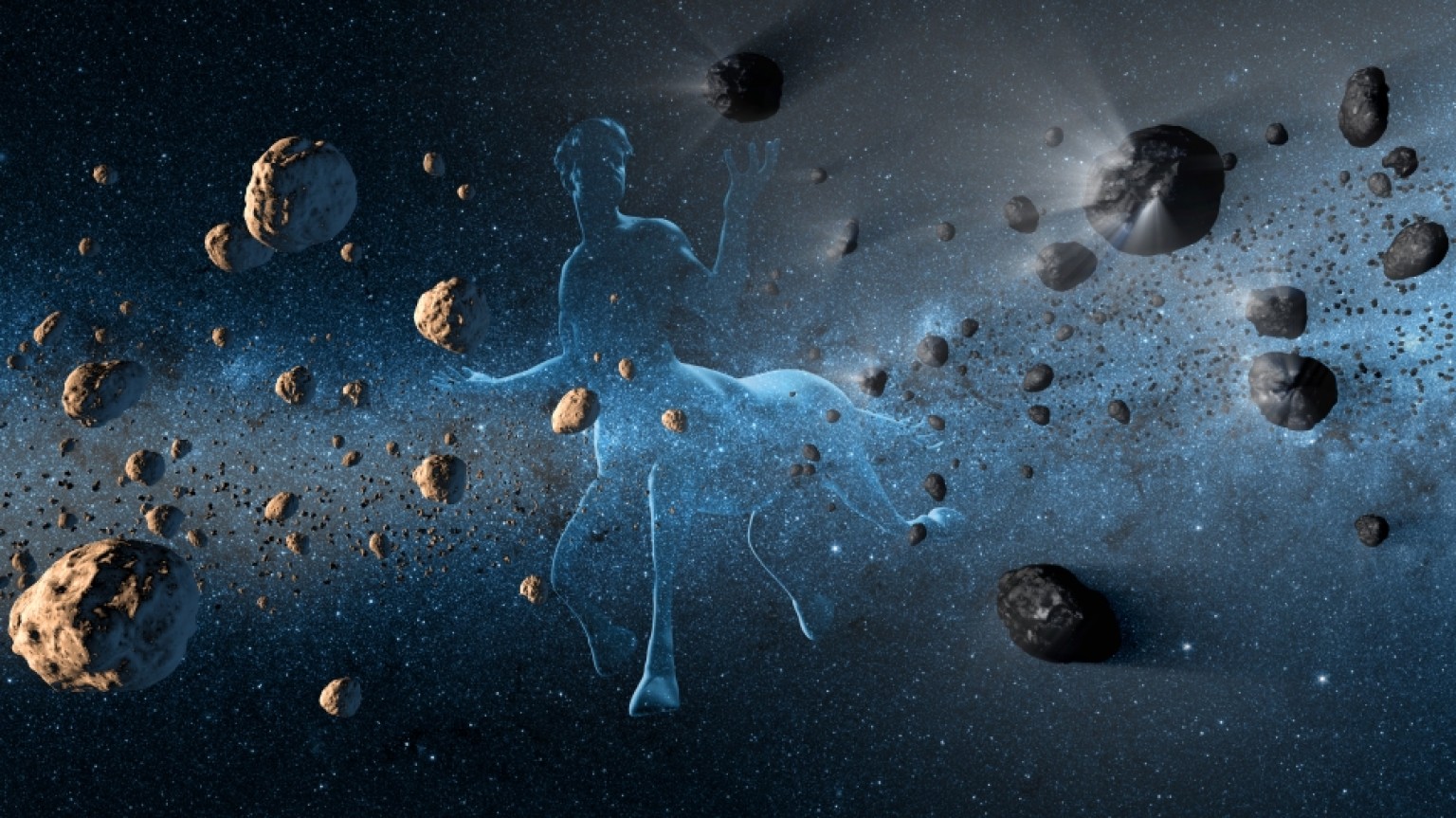Science
Related: About this forumThe Centaurs of the Solar System: Giant comets near Jupiter, Saturn, Uranus and Neptune,


Giant Comets Periodically Smash Earth, Scientists Say
Giant comets that originate in the planetary fringes of the solar system pose a greater threat of colliding with Earth than do asteroids, which originate closer to the sun, a new review paper argues.
In the last two decades, scientists have discovered hundreds of giant comets (known as centaurs) in the region near Jupiter, Saturn, Uranus and Neptune, according to a statement from the Royal Astronomical Society.
No centaur poses a known immediate threat to Earth, but the discovery of this massive population has led a group of astronomers to re-assess the threat of these seemingly distant bodies to this planet. [Pictures of Potentially Dangerous Asteroid]
Estimates currently suggest that one of these giant comets crosses Earth's orbit on average only once every 40,000 to 100,000 years, at which time the comet is believed to break up into dust and debris that can collide with the planet. These collisions may be responsible for environmental upheavals in Earth's past; they may even be associated with the extinction of the dinosaurs 65 million years ago, the statement said.
Centaurs are between 31 and 62 miles (50 and 100 kilometers) across and move in unstable orbits near the giant planets. Occasionally, the gravitational influence from one of these planets can send the centaur careening toward Earth.
"In the last three decades, we have invested a lot of effort in tracking and analyzing the risk of a collision between the Earth and an asteroid," said Bill Napier, an honorary professor in the Centre for Astrobiology at the University of Buckingham in the United Kingdom, in the statement. Napier is first author on a review paper that aims to re-assess the threat of centaurs to the Earth.
http://www.space.com/31466-giant-comets-smash-earth.html
1monster
(11,012 posts)to 100,000 years, and one hit Tunguska in 1908, we can all breathe easy about comets for now. And go back to the hysterical worry about the imminent danger of the super caldera that is Yellowstone and the the up coming solar storm that will disrupt and eliminate our communications and our power grid for up to a year.
My own philosophy: Since there is absolutely nothing we can do to prevent the former, why worry over it? In the case of the second, stock up on dried and canned goods and invest in rain barrels. ![]()
Ichingcarpenter
(36,988 posts)Tunguske was nothing compare to that one 13,000 years ago
http://www.space.com/14793-comet-earth-impact-younger-dryas.html
https://en.wikipedia.org/wiki/Younger_Dryas_impact_hypothesis
Very high-temperature impact melt products as evidence for cosmic airbursts and impacts 12,900 years ago
https://www.ncbi.nlm.nih.gov/pmc/articles/PMC3396500/
http://www.geo.arizona.edu/~reiners/blackmat.pdf
1monster
(11,012 posts)I'm not going to waste brain space worrying ... Que sera sera.
Ghost Dog
(16,881 posts)destroying everything here. for a start...